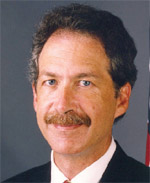
Burns in Sana’a Soon US-Yemeni Discussions on Fighting Terror [Archives:2002/02/Front Page]
January 7 2002

The US-Yemeni cooperation in fighting terrorism is also to be discussed. Besides, the Commander of the Special Operations at the US Central Forces will visit Yemen soon. He is also to discuss cooperation between the US and Yemen, mainly in the fight against terrorism. The US confirmed its commitment to building up well-qualified Special Task Forces in Yemen to be able to crackdown on terror.
The US administration praised Yemen’s anti-terrorists crackdown and expressed its strong support of president Saleh’s determination to eradicate terrorism in Yemen, as demonstrated by the ongoing operations against suspected members of al-Qaeda in Shabwa, Mareb and al-Jawf governorates.
The US Ambassador to Yemen, Edmund Hull, encouraged the Yemeni parliament to support the president’s initiative by ratifying the three remaining international counter-terrorism conventions. Yemen ratified nine of the 12 international conventions. The remaining are on the crackdown on financing terrorism, international convention on plastic explosives, and international convention on nuclear materials. These three conventions have been approved by the Cabinet but the parliament has not ratified them yet. Hull said during his meeting with Jubran Abu Shwarib, the Chairman of Parliament’s Foreign Relations Committee that “By ratifying the three remaining conventions on counter-terrorism, Yemen would underscore its leadership in the international fight against terrorism by being the first Arab country to ratify all 12 conventions.”
In a press release distributed by the US Embassy in Sana’a Wednesday, Abu Shwarib said the parliament would continue to support president Saleh’s vigorous stand against terrorism and lawlessness, including kidnapping of foreigners and that parliament would give high priority to ratifying the three remaining international counter-terrorism conventions.
In his meeting with Sheikh Naji Abdulaziz al-Shaif on December 30, Mr. Hull said: “Tribal kidnappings are extremely bad for Yemen.” “They stymie government initiatives to bring economic development to tribal areas. They damage Yemen’s international reputation and blacken the reputation of honorable tribes. They scare away foreign investment,” he noted, adding: “All Yemenis whether they are members of tribes or not, should support the president to put an end to tribal lawlessness. Without stability and security, there can be no development.”
Political observers believe that the ongoing war against terrorism has opened the way for US-Yemen relations to improve tremendously. The US Ambassador said fighting terrorism was a high priority of the US-Yemen bilateral relationship. However, he confirmed this relationship did go beyond just countering terrorism. He said: “The US and Yemen have been active partners on a variety of issues over the past several years. We will certainly continue to work closely together on fighting terrorism. But we also continue our support for the Yemeni democratization and economic reform. Yemen is a regional leader in reform and we want to be a part of this historic process. We will continue to support human rights, judicial reform and women’s economic and political empowerment, just as we will seek to expand US-Yemeni cultural and educational exchange programs and continue to support Yemen’s economic restructuring at the World Bank and in the IMF.” ” The US-Yemeni relationship is a broad and mutually supportive partnership,” he added.
This is a very good pointer that the relationship between Yemen and the US is at its best for the US is aware of the role Yemen can play if we take into account its geographical position in the region.
——
[archive-e:02-v:2002-y:2002-d:2002-01-07-p:./2002/iss02/front.htm]


